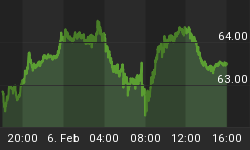As expected, the Eurozone fell into deflation last month, but details show energy and unprocessed food are the only things in decline. Services are up 1.2%.
Please consider the Eurostat Flash Inflation Estimate for December 2014.
Euro area annual inflation is expected to be -0.2% in December 2014, down from 0.3% in November, according to a flash estimate from Eurostat, the statistical office of the European Union. This negative rate for euro area annual inflation in December is driven by a fall in energy prices (-6.3%, compared with -2.6% in November), while prices remain stable for food, alcohol & tobacco (0.0%, compared with 0.5% in November) and non-energy industrial goods (0.0%, compared with -0.1% in November). The only annual increase is expected for services (1.2%, stable compared with November).
Economists Howl Over Welcome Event
Economists are in shock over what should be a welcome event. Deflation is exactly what consumers need. Some say this increases the likelihood the ECB will act on January 22.
Actually, it does nothing of the kind. The ECB is already 100% certain to do something counterproductive, and odds cannot exceed 100%.
Please consider three statements in today's Financial Times article Eurozone falls into deflation for first time since October 2009.
- "It's impossible for the ECB to not pull the trigger later this month," said Carsten Brzeski, an economist at ING-DiBa. "It is more a question of how vague policy makers can be without disappointing markets."
- Anatoli Annenkov, of Société Générale, said: "The figure feeds into the game plan of launching new measures very soon. There's no real point in waiting -- inflation will fall further in the months ahead."
- James Ashley, economist at RBC Capital Markets, said that while oil prices were a factor, "the far more important question is why inflation is anywhere near 0 per cent in the first place". "The inconvenient truth for policy makers is that, in large part, that is a reflection of the failure of policy (both fiscal and monetary)," he added.
Challenge to Keynesians
Here's my take on why whatever the ECB does cannot and will not work: ECB Considering Three QE Options; Eight Reasons Why ECB's Plan Will Fail; Something Up Draghi's Sleeve?
As for inflation, I am still waiting for economists to respond to this: Challenge to Keynesians "Prove Rising Prices Provide an Overall Economic Benefit."
What central bankers "ought" to fear is asset-price deflation, not routine price deflation. And the irony is that by fighting routine price-deflation that should be welcome, they create destructive asset bubbles guaranteed to pop, eventually sinking all the loans made based on inflated assets, and jeopardizing banks in the process.
It's so obvious, yet Keynesian-trained fools cannot see it.
Saying Something Stupid
In honor of the ECB about to say (and do) something stupid, I present ...
















